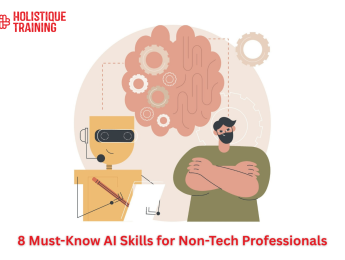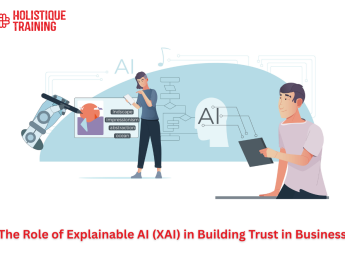- Table of Contents
- Introduction
- What Are Bespoke Training Solutions?
- Why Are Bespoke Training Solutions Important for Businesses?
- What Are the Key Benefits of Implementing Bespoke Training Solutions?
- What Challenges Can Arise in Developing Bespoke Training Solutions?
- How to Measure the Effectiveness of Bespoke Training Solutions?
- What Future Trends Are Shaping Bespoke Training Solutions?
Introduction
In today's rapidly evolving business landscape, organizations are increasingly turning to bespoke training solutions to address their unique challenges and goals. Customized training programs offer a tailored approach to workforce development, aligning closely with an organization's specific requirements, culture, and objectives. This article delves into the world of bespoke training solutions, exploring their significance, benefits, and the key trends shaping their future. These solutions offer a tailored learning experience that not only improves employee skills and performance but also significantly boosts an organization's overall success and adaptability in a competitive market.
What Are Bespoke Training Solutions?
Bespoke training solutions are customized educational programs designed to meet the specific needs and objectives of an organization or individual. Unlike off-the-shelf courses, bespoke training is tailored to address the unique challenges, skills gaps, and goals of a particular group or organization. This personalized approach ensures that the content is relevant, engaging, and directly applicable to the learners' daily tasks and long-term career development. By incorporating the company's culture, processes, and industry-specific knowledge, bespoke training solutions foster a more effective learning environment, leading to improved performance, productivity, and morale among participants. These solutions can range from in-person workshops and seminars to online courses and multimedia learning materials, all crafted to align with the client's strategic objectives and learning preferences.
Why Are Bespoke Training Solutions Important for Businesses?
Bespoke training solutions are crucial for businesses because they offer a targeted approach to professional development, aligning training content with the company's specific goals, challenges, and industry standards. This tailored training strategy provides several benefits:
- Enhanced Relevance: Bespoke training directly addresses the particular needs and gaps within a business, making the learning experience highly relevant and immediately applicable to the job. This relevance boosts employee engagement and the effective transfer of knowledge to the workplace.
- Increased Efficiency: By focusing on the skills and knowledge that employees genuinely need, bespoke training eliminates unnecessary or redundant content found in generic courses. This focus ensures that training time is used efficiently, maximizing the return on investment.
- Improved Performance: Customized training can significantly impact employees' performance by equipping them with the specific tools and skills they need to excel in their roles. This leads to increased productivity, quality of work, and innovation within the company.
- Supports Business Goals: Bespoke training can be designed to support specific business objectives, whether it's launching a new product, entering a new market, or improving customer service. This alignment ensures that all employees are working towards the same goals with the necessary skills and knowledge.
- Flexibility and Adaptability: Customized training solutions offer the flexibility to adapt to the business's changing needs, learning styles, and schedules. Training can be delivered in various formats, such as in-person, online, or blended learning, to accommodate different preferences and constraints.
- Competitive Advantage: By investing in bespoke training that develops unique competencies and knowledge, companies can differentiate themselves from competitors. This advantage can lead to better customer service, innovation, and the ability to adapt to market changes more effectively.
- Employee Satisfaction and Retention: Providing training that addresses employees' career development and skills enhancement can lead to higher job satisfaction and engagement. This, in turn, improves employee retention rates, reducing the costs associated with high turnover.
Overall, bespoke training solutions are essential for businesses looking to develop their workforce strategically, ensuring that training investments directly contribute to the company's success and competitive position in the market.
What Are the Key Benefits of Implementing Bespoke Training Solutions?
Implementing bespoke training solutions offers several key benefits for businesses, enhancing both organizational performance and employee development. These benefits include:
- Tailored Content: Bespoke training is specifically designed to meet the unique needs and objectives of a business, ensuring that the training content is highly relevant and applicable to the employees' roles and the company’s industry.
- Increased Engagement: Customized training materials and scenarios that reflect real-life challenges faced by the employees can significantly increase engagement and participation. This leads to a more effective learning experience.
- Greater Flexibility: Bespoke training solutions can be adapted to fit the schedule and learning pace of the workforce. They offer the flexibility to be delivered in various formats, such as online, in-person, or blended, accommodating different learning styles and preferences.
- Improved Performance and Productivity: By addressing specific skill gaps and enhancing employees' competencies, bespoke training directly contributes to improved performance and productivity within the organization.
- Support for Strategic Goals: Custom training programs can be aligned with the strategic objectives of the company, ensuring that all employees are equipped with the necessary skills and knowledge to contribute effectively to these goals.
- Cost-Effectiveness: Although initially perceived as more expensive, bespoke training can be more cost-effective in the long run. By focusing on the specific needs of the business, it avoids the inefficiencies associated with generic training programs.
- Competitive Advantage: Developing unique skills and knowledge within the workforce can give businesses a competitive edge in their industry, particularly in areas such as customer service, innovation, and operational efficiency.
- Enhanced Employee Satisfaction and Retention: Providing personalized training opportunities demonstrates a company's investment in its employees' career development, leading to increased job satisfaction, loyalty, and retention.
- Adaptability to Change: Customized training solutions can be quickly updated or modified to address new challenges, technologies, or business strategies, making the organization more agile and responsive to change.
- Consistent Learning Experience: Bespoke training ensures that all employees, regardless of their location or department, receive a consistent learning experience that upholds the company’s standards and expectations.
Table 1: Key Benefits of Implementing Bespoke Training Solutions for Businesses
Benefit | Description |
Tailored Content | Training is designed to meet the unique needs and objectives of the business, ensuring relevance and applicability. |
Increased Engagement | Materials and scenarios reflecting real-life challenges increase engagement, leading to a more effective learning experience. |
Greater Flexibility | Training can be adapted to fit various schedules and learning styles, offered in online, in-person, or blended formats. |
Improved Performance & Productivity | Addresses specific skill gaps, enhancing competencies and directly contributing to organizational performance. |
Support for Strategic Goals | Training programs are aligned with company objectives, equipping employees with skills to contribute effectively. |
Cost-Effectiveness | Custom training avoids inefficiencies associated with generic programs, potentially offering better long-term value. |
Competitive Advantage | Unique skills developed within the workforce can give businesses an edge in customer service, innovation, and efficiency. |
Enhanced Employee Satisfaction & Retention | Demonstrates investment in employee development, leading to increased satisfaction, loyalty, and retention. |
Adaptability to Change | Training can be quickly updated or modified to address new challenges, technologies, or strategies. |
Consistent Learning Experience | Ensures all employees receive a consistent experience that upholds the company’s standards and expectations. |
By focusing on these benefits, businesses can leverage bespoke training solutions to create a more knowledgeable, skilled, and motivated workforce, poised to meet the challenges of today’s dynamic business environment.
What Challenges Can Arise in Developing Bespoke Training Solutions?
Developing bespoke training solutions, tailored to the unique needs and goals of an organization, can offer unparalleled benefits in terms of employee engagement, skill development, and operational efficiency. However, the path to implementing these personalized training programs is not without its challenges. Addressing these obstacles requires strategic planning, resource allocation, and a commitment to continuous improvement. Here are expanded insights into the challenges organizations may face:
- High Initial Investment: Bespoke training solutions necessitate a considerable initial investment. Organizations must be prepared to allocate financial resources, dedicated personnel, and time to thoroughly analyze training needs, develop customized content, and deploy these solutions. The investment extends beyond creation to include implementation, monitoring, and updates, which can strain budgets if not planned for meticulously.
- Complex Needs Assessment: Identifying the specific training needs within an organization requires a detailed and often complex assessment process. This challenge is compounded in larger or more diverse organizations where needs can vary significantly across different teams, departments, or geographic locations. A comprehensive needs assessment involves gathering and analyzing data from a variety of sources, including employee feedback, performance metrics, and business objectives, which can be time-consuming and require specialized skills.
- Resource Allocation: The development of bespoke training programs often demands substantial internal resources. Subject matter experts may need to be pulled from their regular duties to contribute content or guidance, while training professionals work on the design and implementation of the program. This diversion of resources can lead to workload challenges and potentially impact other areas of productivity within the organization.
- Scalability Issues: Customized training solutions, while effective in addressing specific organizational needs, may encounter scalability challenges. As businesses grow or evolve, training programs may require significant adjustments or expansions to accommodate new employees, technologies, or strategic directions. Ensuring scalability without compromising the personalized nature of the training can be a delicate balance to achieve.
- Keeping Content Up-to-Date: The rapid pace of change in many industries means that bespoke training content can quickly become outdated. Regular updates are necessary to maintain the relevance and effectiveness of the training, which can add to the long-term maintenance costs and effort required. This challenge is particularly acute in fast-moving fields such as technology, where new developments can render existing training obsolete in a short time.
- Measuring Effectiveness: Evaluating the return on investment (ROI) and overall impact of bespoke training solutions is more nuanced than with off-the-shelf programs. Custom evaluation methods and metrics may need to be developed to accurately assess whether the training is meeting its objectives, which can involve complex data analysis and a deep understanding of the desired outcomes.
- Integration with Existing Systems: Ensuring that bespoke training programs integrate seamlessly with an organization's existing learning management systems (LMS) and technological infrastructure can present technical challenges. Compatibility issues can hinder the deployment and accessibility of training, impacting its effectiveness and employee participation rates.
- Cultural and Language Barriers: For organizations operating across multiple countries or regions, developing training that is culturally appropriate and available in multiple languages adds layers of complexity to the design and delivery process. Navigating cultural nuances and ensuring accurate translations requires expertise and sensitivity to avoid miscommunications and enhance the learning experience for all participants.
- Change Resistance: Introducing new, customized training programs can sometimes meet with resistance from employees and managers who are accustomed to traditional methods. Overcoming this resistance involves clear communication about the benefits of the bespoke training, addressing concerns, and actively involving stakeholders in the development process to ensure buy-in and commitment.
- Expertise Availability: Finding training providers or in-house professionals with the specific expertise required to develop and deliver high-quality, effective bespoke training programs can be challenging. The unique nature of these solutions often requires a higher level of specialization and experience than off-the-shelf programs, making the selection of partners or staff a critical factor in the success of the initiative.
Navigating these challenges demands a strategic approach, where organizations carefully plan the development, implementation, and ongoing management of bespoke training solutions. Success hinges on aligning the training closely with business objectives, continuously evaluating its impact, and being prepared to adapt and refine programs as needs evolve. Despite the hurdles, the benefits of bespoke training—enhanced skills, improved performance, and greater employee engagement—can significantly outweigh the challenges, making it a valuable investment for organizations committed to long-term success.
How to Measure the Effectiveness of Bespoke Training Solutions?
Measuring the effectiveness of bespoke training solutions is crucial for understanding their impact on employee performance and the overall return on investment (ROI) for the organization. A comprehensive evaluation strategy involves both qualitative and quantitative measures, tailored to the specific objectives of the training. Here's how organizations can approach this task:
- Define Clear Objectives: Begin by clearly defining the objectives of the bespoke training program. Goals should be defined as Specific, Measurable, Achievable, Relevant, and Time-bound (SMART) . Knowing what you aim to achieve helps in designing appropriate metrics for measurement.
- Pre- and Post-Training Assessments: Conduct assessments before and after the training to evaluate knowledge acquisition, skills development, and attitude changes. Comparing pre- and post-training results provides concrete evidence of learning and improvement.
- Feedback Surveys: Collect feedback from participants through surveys or questionnaires immediately after the training and again after a period of applying the learning in the workplace. This feedback can provide insights into the training's relevance, engagement level, and areas for improvement.
- Observation and Interviews: Conduct observations and interviews with participants and their managers to gather qualitative data on the application of learned skills and behaviors in the workplace. Direct observation and anecdotal evidence can provide a deeper understanding of the training's effectiveness.
- Performance Metrics: Track specific performance metrics related to the training objectives. This could include sales figures, productivity rates, quality improvements, or any other relevant performance indicators. An increase in these metrics can signal the effectiveness of the training.
- Assessment of Business Impact: Evaluate the training's impact on broader business goals, such as increased revenue, cost savings, reduced turnover, or improved customer satisfaction. Aligning training outcomes with strategic business objectives demonstrates the value of the bespoke training solution.
- ROI Analysis: Calculate the ROI of the training by comparing the benefits (e.g., performance improvements, cost savings) against the costs of developing and implementing the bespoke training program. Although calculating ROI for training can be complex, it provides a tangible measure of financial effectiveness.
- Long-term Tracking: Monitor the long-term effects of the training on participants and the organization. Continuous improvement in performance, sustained changes in behavior, and long-term business impacts are indicators of successful training.
- Benchmarking: Compare the outcomes of the bespoke training program against industry benchmarks or previous internal training initiatives. Benchmarking can offer an external perspective on the effectiveness of the training.
- Learning Management System (LMS) Analytics: If the bespoke training is delivered through an LMS, utilize the system's analytics tools to track engagement, completion rates, and assessment scores. LMS data can provide valuable insights into participant engagement and learning progress.
By employing a mix of these methods, organizations can gain a comprehensive view of the effectiveness of their bespoke training solutions. The key is to continuously collect and analyze data, allowing for adjustments and improvements to ensure the training remains aligned with organizational goals and employee needs.
What Future Trends Are Shaping Bespoke Training Solutions?
The landscape of bespoke training solutions is evolving rapidly, influenced by technological advancements, changing workforce dynamics, and shifting organizational priorities. Here are several key trends shaping the future of customized training programs:
- Increased Emphasis on Digital Learning: With the rise of remote work and digital platforms, there's a growing trend towards online and blended learning formats. Bespoke training solutions are increasingly incorporating e-learning modules, virtual classrooms, and digital simulations to offer flexible and accessible learning experiences.
- Personalization through AI and Machine Learning: Artificial Intelligence (AI) and machine learning are enabling more personalized learning experiences. Training programs can now adapt in real-time to the learner's pace, preferences, and performance, providing tailored content that meets individual needs more effectively.
- Microlearning and Just-in-Time Learning: There is a shift towards bite-sized learning modules that are easier to digest and can be accessed on-demand. This approach caters to the modern learner's preference for quick, focused learning experiences that fit into their busy schedules and provide immediate value.
- Integration of Soft Skills Training: As automation and AI take over more routine tasks, there's an increased focus on developing soft skills such as critical thinking, creativity, communication, and emotional intelligence. Bespoke training solutions are incorporating these elements to prepare employees for the evolving demands of the workplace.
- Incorporating Gamification and Interactive Tech: Integrating gamification, along with Virtual Reality (VR) and Augmented Reality (AR), into custom training engages participants, elevates the learning journey, and boosts memory retention. These innovative technologies transform education into a more captivating experience.
- Focus on Continuous Learning and Development: Organizations are recognizing the importance of fostering a culture of continuous learning and development. Bespoke training solutions are designed to encourage ongoing learning, with pathways for advancement and regular updates to content to reflect the latest industry trends and practices.
- Data-Driven Insights for Training Optimization: The use of analytics and data is becoming more prevalent in training development and evaluation. Data-driven insights help in customizing training content, measuring effectiveness, and identifying areas for improvement, ensuring that training solutions remain aligned with organizational goals.
- Emphasis on Emotional Intelligence and Mental Health: There's a growing awareness of the significance of emotional intelligence and mental health in the workplace. Bespoke training solutions include components that address these aspects, supporting overall well-being and resilience among employees.
- Sustainability and Social Responsibility: As organizations become more conscious of their impact on society and the environment, training programs are incorporating sustainability practices and social responsibility. This trend reflects a broader shift towards ethical business practices and corporate social responsibility.
- Collaborative and Social Learning: The future of bespoke training emphasizes collaboration and social learning, leveraging social media tools and platforms to facilitate peer-to-peer learning, knowledge sharing, and networking. This approach harnesses the collective knowledge and experiences of the workforce to enhance learning outcomes.
Table 1: Future Trends in Bespoke Training Solutions
Trend | Description |
Increased Emphasis on Digital Learning | Growing trend towards online and blended learning formats, incorporating e-learning modules, virtual classrooms, and digital simulations. |
Personalization through AI and Machine Learning | AI and machine learning enable more personalized learning experiences by adapting content to the learner's pace, preferences, and performance. |
Microlearning and Just-in-Time Learning | Shift towards bite-sized, easily digestible learning modules that are accessible on-demand, catering to modern learners' preferences. |
Integration of Soft Skills Training | Increased focus on developing soft skills such as critical thinking, creativity, communication, and emotional intelligence. |
Incorporating Gamification and Interactive Tech | Use of gamification, VR, and AR to engage participants, elevate the learning journey, and boost memory retention. |
Focus on Continuous Learning and Development | Designing bespoke training solutions to encourage ongoing learning with pathways for advancement and content updates. |
Data-Driven Insights for Training Optimization | Utilizing analytics and data to customize training content, measure effectiveness, and identify areas for improvement. |
Emphasis on Emotional Intelligence and Mental Health | Including components that address emotional intelligence and mental health, supporting overall well-being and resilience. |
Sustainability and Social Responsibility | Incorporating sustainability practices and social responsibility into training programs, reflecting ethical business practices. |
Collaborative and Social Learning | Emphasizing collaboration and social learning through the use of social media tools and platforms for peer-to-peer learning and knowledge sharing. |
These trends indicate a move towards more flexible, personalized, and technology-driven training solutions that not only address specific organizational needs but also cater to the preferences and requirements of a modern, diverse workforce. By staying abreast of these trends, organizations can develop bespoke training programs that are effective, engaging, and future-proof.
Conclusion
In conclusion, bespoke training solutions represent a strategic investment in an organization's most valuable asset: its people. By offering tailored learning experiences that align with specific business goals and employee needs, these customized programs can significantly enhance workforce capabilities, engagement, and productivity. As we look to the future, the continued evolution of bespoke training solutions will undoubtedly play a crucial role in enabling businesses to navigate the complexities of the modern workplace, fostering a culture of continuous improvement. Organizations that recognize and leverage the power of customized training are well-positioned to thrive in an ever-changing business environment.

























